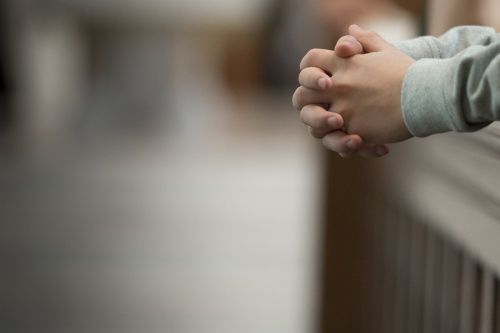In their keynote address at the National Prayer Breakfast, the couple behind the History Channel’s ‘The Bible’ miniseries called for efforts to unite people of different faiths, races and political beliefs.
“It’s very easy to divide people and it’s very difficult to bring people together,” said producer Mark Burnett.
He and his wife, actress Roma Downey, spoke at the National Prayer Breakfast, an annual gathering of religious and civic leaders held since 1953, in Washington, D.C. Attendance at the event is generally in the thousands.
Describing their work to make ‘The Bible’ miniseries, Burnett said that they quickly realized the challenge in working across faith communities that included various Protestant groups, Catholics and Jews.
In fact, he said, there are more than 30,000 denominations within Christianity alone, and they have different views on parts of Scripture.
“We learned to become bridge builders. And bridge-building became our mission,” he said.
Downey elaborated: “I know the power of a bridge from my own life’s journey growing up in war-torn Northern Ireland.”
She talked about the need for bridges in the 21st century.
“We are at a time in the world’s history where there is so much pain and fear and division everywhere. And these divisions show up in race and in religion and in politics,” she said. “The dividing lines are easy to find. The bridges to peace are harder to build.”
“May we all find our dividing lines and work until we’ve built our own bridges of peace across them,” Downey said. “Perhaps a good place to start is to simply see the image of God in the eyes of everyone you meet.”
Held at the Washington Hilton, Thursday’s prayer breakfast also featured remarks by House Minority Leader Nancy Pelosi (D-Calif.), Speaker Paul Ryan (R-Wisc.), a rendition of “Panis Angelicus” by tenor Andrea Bocelli, and remarks from U.S. president Barack Obama.
Speaker Ryan defended the importance of prayer against what he deemed as a “growing impatience” with it.
“When people say they’re praying for someone or something, the attitude in some quarters seems to be, ‘Don’t just pray; do something about it,’” he said. “But the thing is, when you are praying, you are doing something about it. You are revealing the presence of God.”
“(T)here is nothing more comforting — or more humbling, really — than to hear someone say, ‘I’m praying for you.’ Because when hear you that, you realize, you’re not alone. God is there. And hundreds, if not thousands, if not millions of people are all speaking to Him on your behalf,” the speaker said.
President Obama spoke in his remarks about faith and Christ as “the great cure for fear.”
“What better time than these changing, tumultuous times to have Jesus standing beside us, steadying our minds, cleansing our hearts, pointing us towards what matters.”
God’s love “gives us the courage to go against the conventional wisdom and stand up for what’s right, even when it’s not popular,” he said, adding that he is inspired by the work of people of faith in serving the needy around the world.
“Whether fighting global poverty or working to end the scourge of human trafficking, you are the leaders of what Pope Francis calls ‘this march of living hope’,” he said.
The president offered prayers for all those around the world who are oppressed for their faith, “including Christians who are persecuted, or who have been driven from their ancient homelands by unspeakable violence.”
“And just as we call on other countries to respect the rights of religious minorities, we, too, respect the right of every single American to practice their faith freely,” he added.
Obama ended his address with a series of petitions. “I pray that we will uphold our obligation to be good stewards of God’s creation — this beautiful planet,” he said.
“I pray that we will see every single child as our own, each worthy of our love and of our compassion. And I pray we answer Scripture’s call to lift up the vulnerable, and to stand up for justice, and ensure that every human being lives in dignity.”

